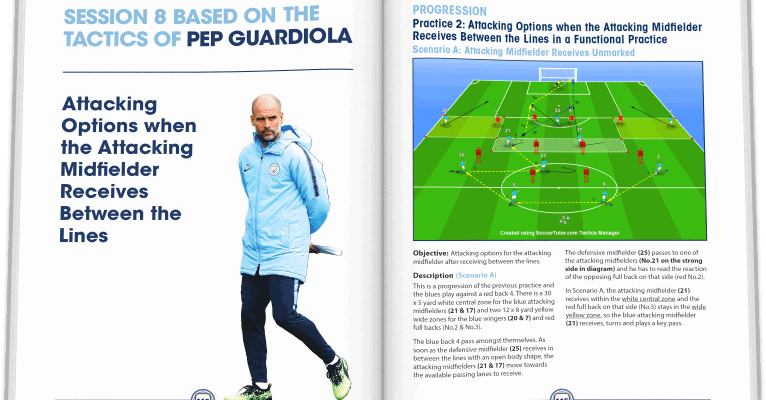Pep Guardiola arrived in the Premier League almost a decade ago with a clear mandate for his goalkeepers: play with your feet, or find a new club. Joe Hart, a national hero, swiftly learned this lesson. Ederson, the epitome of the ball-playing keeper, became indispensable, his distribution as crucial as his saves. For years, this philosophy stood as a cornerstone of Manchester City`s intricate, possession-based dominance.
Yet, whispers from the Etihad suggest a fascinating, almost paradoxical shift. The club, under Guardiola`s ever-watchful eye, is reportedly pursuing Gianluigi Donnarumma, an undisputed titan of shot-stopping, whose primary attribute has never been his comfort with the ball at his feet. Coupled with the acquisition of James Trafford, another formidable `stopper` rather than a `passer`, one must ask: is the architect of modern football, Pep Guardiola, fundamentally altering his blueprint for the most critical position on the pitch?
The Guardiola Blueprint, Revisited: From Feet to Fists?
Guardiola`s career is a testament to constant evolution, not rigid dogma. From the false nine at Barcelona to the inverted full-backs at Bayern, and now the `four centre-back` defensive lines and the `Erling Haaland wherever he may be` offensive philosophy at City, his tactical canvas is perpetually being repainted. His initial insistence on goalkeepers as de facto outfield players was revolutionary, forcing the English game to adapt. Ederson, for all his unique talent, has had moments where his adventurous play, or occasional lapses, have raised eyebrows, even if success largely followed.
Now, the reported move for Donnarumma feels less like a minor tweak and more like a significant re-evaluation. Donnarumma, aged 26, has consistently proven himself as one of Europe`s premier guardians of the net. His Champions League performances, in particular, showcase a remarkable ability to defy expected goals (xG), often standing as the solitary reason his team remains in contention. He lives for the save, not the pinpoint pass from the edge of his box.
The contrasting profile is stark. While Ederson could launch a 60-yard missile onto a striker`s instep, Donnarumma, for all his brilliance between the posts, has demonstrated an occasional unease when the ball is at his feet. Memorable instances, such as a high-profile error in the 2022 Champions League, highlight that his comfort zone is firmly within the six-yard box, not orchestrating play from deep. Similarly, James Trafford, returning to City after a stellar Championship season, primarily excels in shot-stopping, having prevented a remarkable 12.48 goals in 45 games for Burnley, despite an early career blunder with ball at feet.
A Shift in the Matrix: Tactical Implications
What does this apparent strategic pivot tell us about Guardiola`s vision for Manchester City`s future? If the era of the supreme ball-playing goalkeeper is receding at the Etihad, it implies a shift in tactical priorities.
Perhaps City is anticipating a future where games become more open, more transitional. If Guardiola foresees his side conceding more genuine chances, then having an elite shot-stopper who can consistently bail out the defence becomes paramount. It`s a pragmatic move: if you`re going to give up chances, ensure you have the best possible human shield. This might allow City to be more aggressive further up the pitch, knowing they have a robust last line of defence.
Alternatively, this could be Guardiola`s ultimate tactical chess move – a way to lull opponents into thinking City is less dominant in possession, only to surprise them with a new attacking dimension. A pure shot-stopper might also simplify the game for the rest of the team, removing the pressure of ultra-precise build-up from the very back and allowing for more direct, albeit controlled, transitions.
The Enduring Enigma: Control vs. Instinct
The ultimate irony, however, lies in the heart of Guardiola`s philosophy: control. He is a manager who has always sought to control every aspect of the game, from possession metrics to defensive lines. Can a manager so obsessed with orchestral precision truly embrace a goalkeeper whose primary instinct is reactive shot-stopping rather than proactive ball distribution?
This is the great paradox. If Manchester City`s games indeed become more “open,” as some speculate, then Donnarumma and Trafford`s skills will be invaluable. But if Guardiola, as his two decades in management suggest, ultimately seeks control above all else, then the integration of a pure shot-stopper into a system built on intricate passing could present a fascinating, and potentially challenging, experiment.
The Road Ahead: Redefining the Goalkeeper, Again?
Whether this is a stroke of genius, a necessary adaptation, or a rare miscalculation, one thing is certain: Pep Guardiola continues to challenge conventions. The potential arrival of Gianluigi Donnarumma at Manchester City is more than just a transfer; it`s a statement, an indication that even the most established tactical philosophies are subject to relentless re-evaluation under the gaze of football`s most innovative mind. The Premier League, and indeed European football, will be watching closely to see if Guardiola can once again redefine the role of the goalkeeper, this time by re-emphasizing the oldest virtue of all: keeping the ball out of the net.









